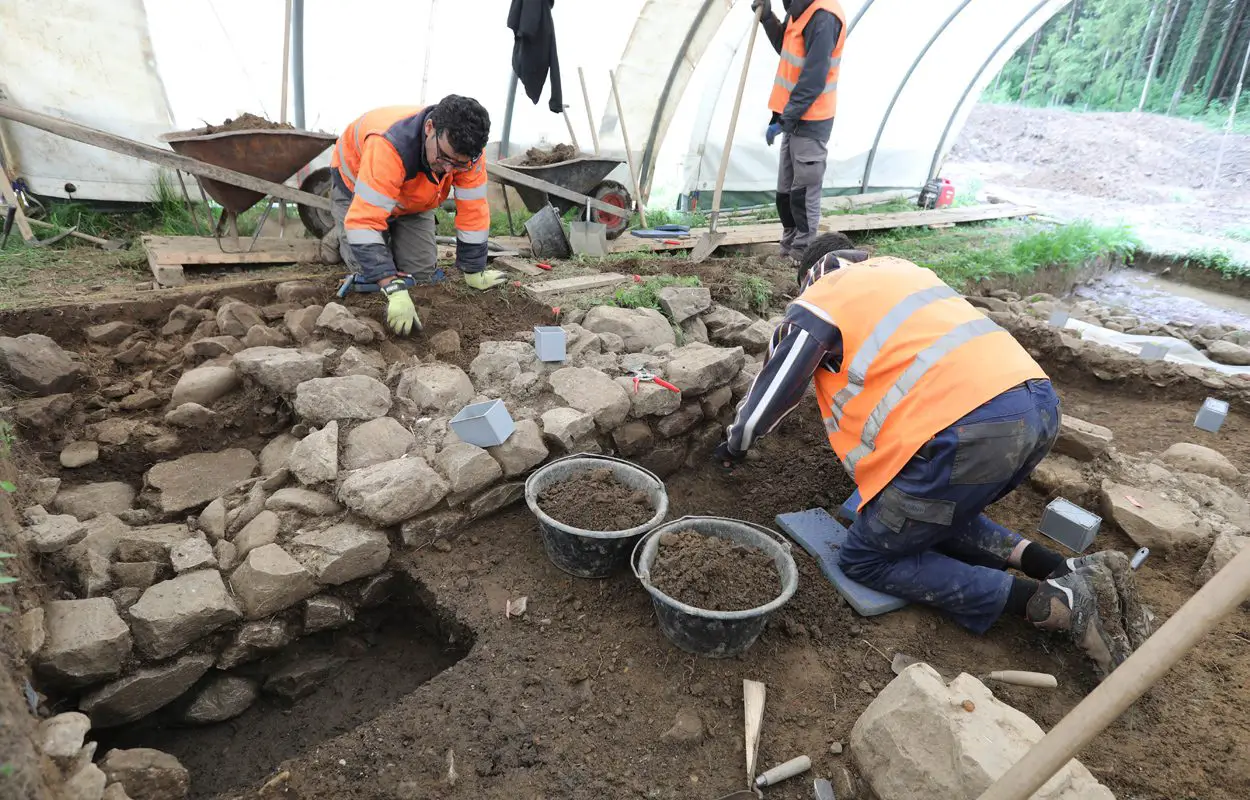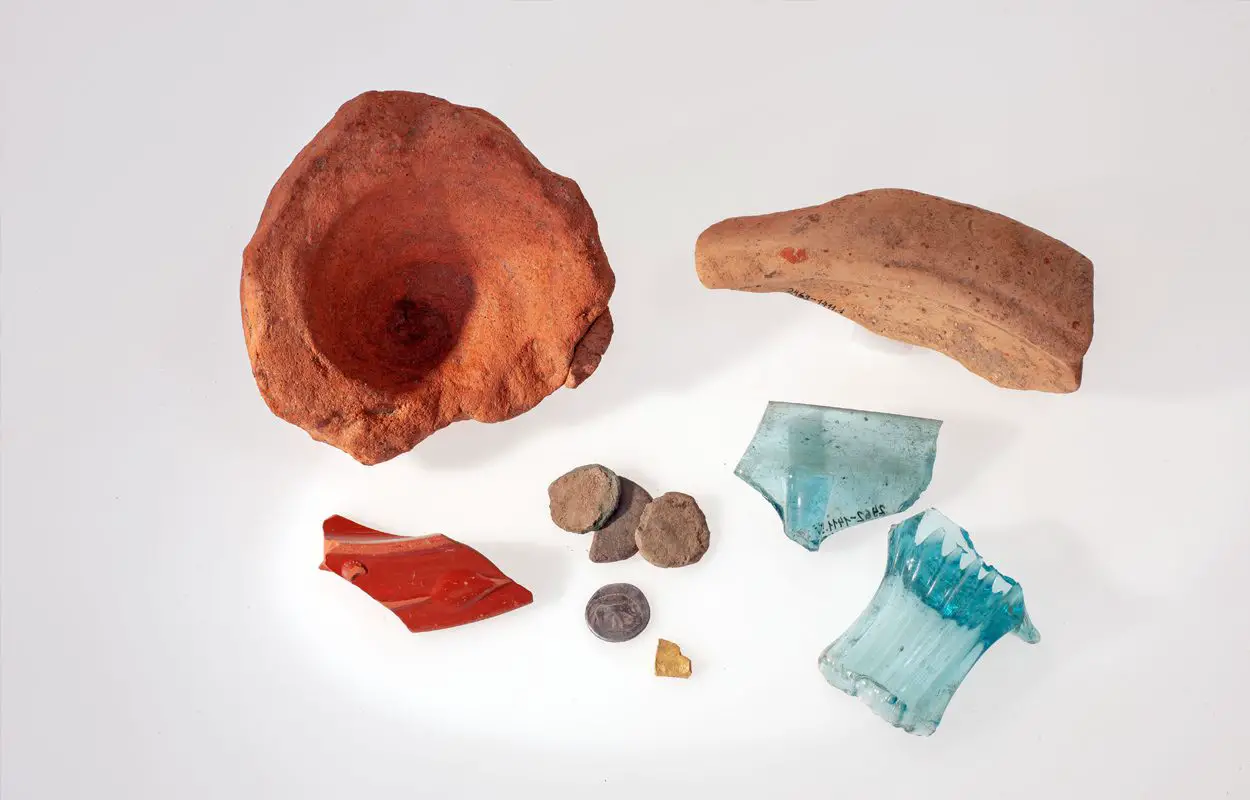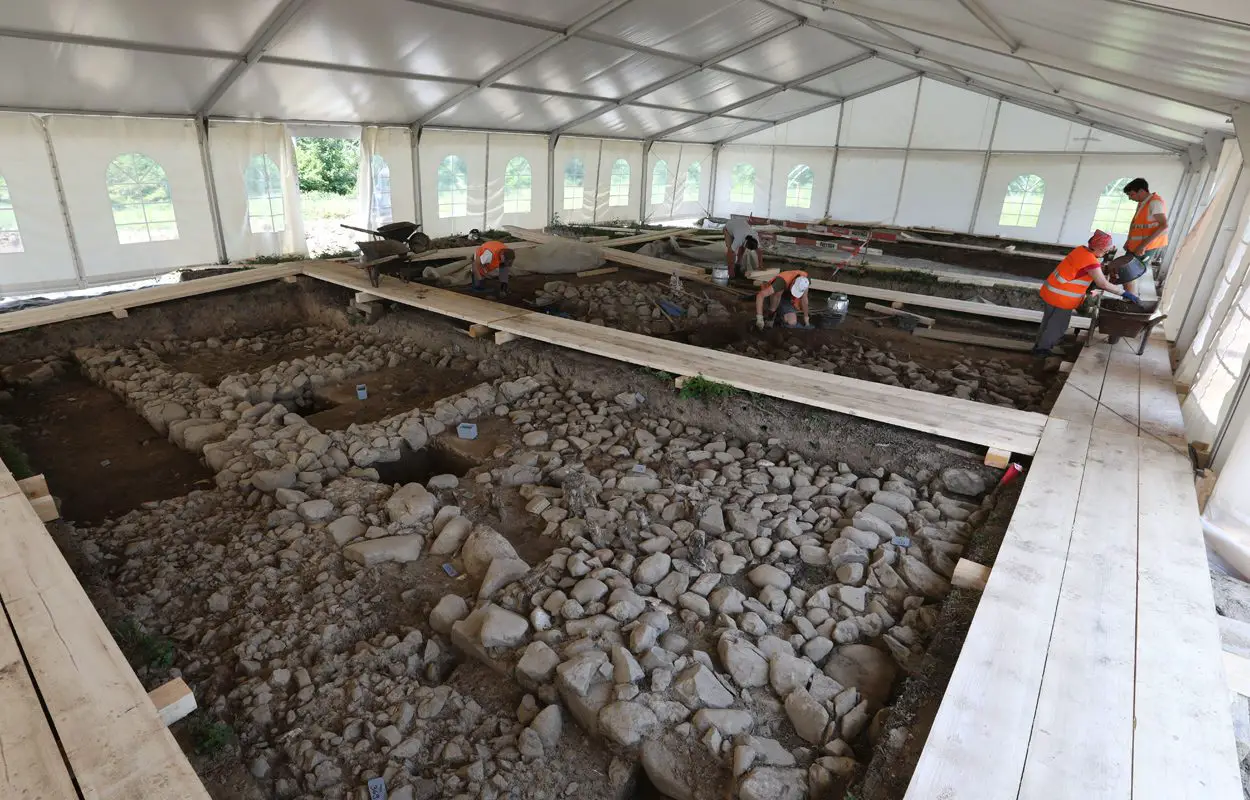A team of archaeologists from the Office for the Preservation of Monuments and Archaeology have uncovered a large Roman complex during excavations in a gravel quarry near Cham-Oberwil, located in the canton of Zug, Switzerland.
The site is situated on an elevated position in the Äbnetwald region, where previous excavations have found evidence of settlements and graves from the Bronze Age and Iron Age periods.
Rescue excavations have been conducted in the quarry by the Office for Monument Preservation and Archaeology since the 1990’s, with a recent study finding a series of large Roman buildings and rooms which belong to a complex that extends over an area of at least 500 m2.
Archaeological evidence indicates that the complex dates from around 2,000-years-ago, giving researchers new insights into large-scale Roman occupation of the pre-Alpine region of Central Switzerland for the first time in almost 100 years.

Christa Ebnöther, Professor of Archaeology at the University of Bern, said: “Only a few structural buildings of this size are known from the Roman period in the pre-Alpine region – in contrast to other regions. What is also astounding is the relatively good preservation of the remains.”
The overall size of the complex and the function is yet to be determined. Archaeologists theorise that it may be a large villa, or possibly a temple.

In addition to the complex’s foundation walls, the team have found everyday objects and high status finds – such as imported Roman tableware (terra sigillata from Italy and Gaul), a gold fragment, coins, glass vessels, pieces of amphorae, and large numbers of iron nails from a wooden construction.
“Thanks to this exemplary cooperation, we have been able to document numerous findings and save valuable finds in recent years,” says Karin Artho, head of the Office for Monument Preservation and Archaeology. “These pieces of the puzzle make it possible to trace the life of our ancestors and to better understand our history.”
Header Image Credit : David Jecker





